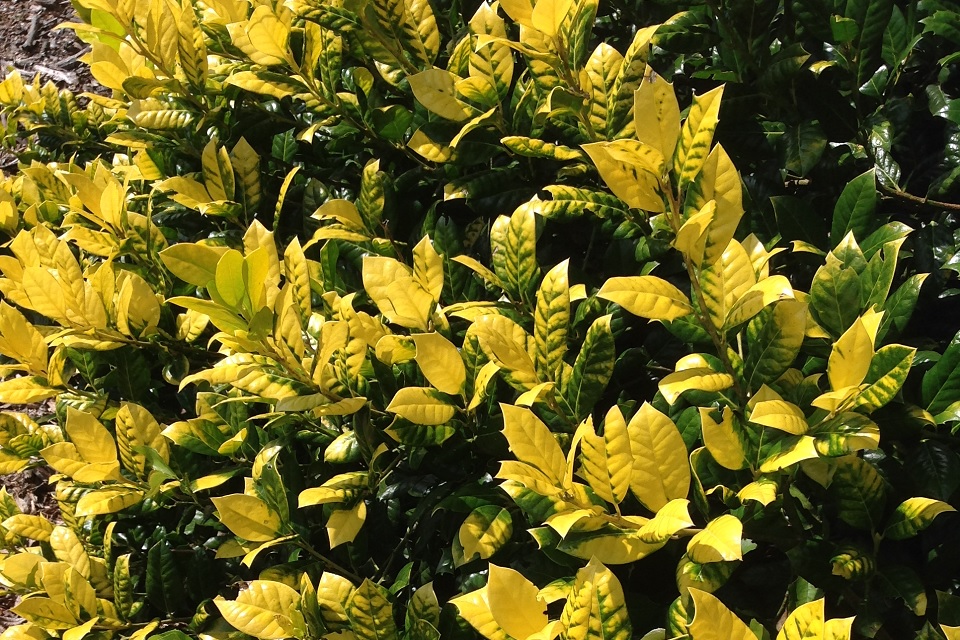
This Holly’s Glow Brightens the Season
From the UT Gardens
February 2017 Plant of the Month: ‘Whoa Nellie’ Holly
Submitted by Jason Reeves, research horticulturist, the University of Tennessee Gardens, Jackson
The first time I saw ‘Whoa Nellie’ was with Dr. Michael Dirr at the University of Georgia’s Horticulture Research Farm in 2011. It was a hot day in July and the bright glow of this holly’s beautiful foliage set me on fire. I had to have one! A few days later I bought one at a nursery in Atlanta and planted it in the UT Gardens, Jackson, that winter. Although the holly was named by Tony Avent, Dirr found the gold leaf selection as a branch sport on ‘Nellie R. Stevens’ on the Georgia campus.
Whoa Nellie’s bright gold foliage contrasts with its older, inner dark-green leaves. For the best gold color this holly should be grown in full sun. More than a few hours of shade will diminish its glow. A male pollinator such as ‘Edward J. Stevens’ or one of the Chinese hollies (Ilex cornuta) should be growing within 100 yards if you want to have bright red berries in the late fall and winter.
Whoa Nellie makes an outstanding single specimen in your landscape as well as a shining light in a mixed screen planting. Its evergreen foliage also works well as cut greenery and will brighten any Christmas arrangement. With no supplemental water, the Whoa Nellie in the UT Gardens, Jackson, has grown to about 6-feet tall in about 5 years. A slightly younger plant can be seen growing along Neyland Drive in the UT Gardens, Knoxville. Under average garden conditions you can expect this holly to reach between 10 and 12 feet tall by 6 to 8 feet wide in about 10 years.
Just like its mother plant ‘Nellie R. Stevens’, Whoa Nellie is a tough long-lived specimen that is hardy to zone 6. It is not the easiest plant to find for sale, but an online search will provide a persistent shopper some options.
The UT Gardens includes plant collections located in Knoxville, Jackson and Crossville. Designated as the official botanical garden for the State of Tennessee, the collections are part of the UT Institute of Agriculture. The Gardens’ mission is to foster appreciation, education and stewardship of plants through garden displays, educational programs and research trials. The Gardens are open during all seasons and free to the public. For more information, see the Gardens website: http://ag.tennessee.edu/utg
Contact:
Jason Reeves, UT Gardens, Jackson